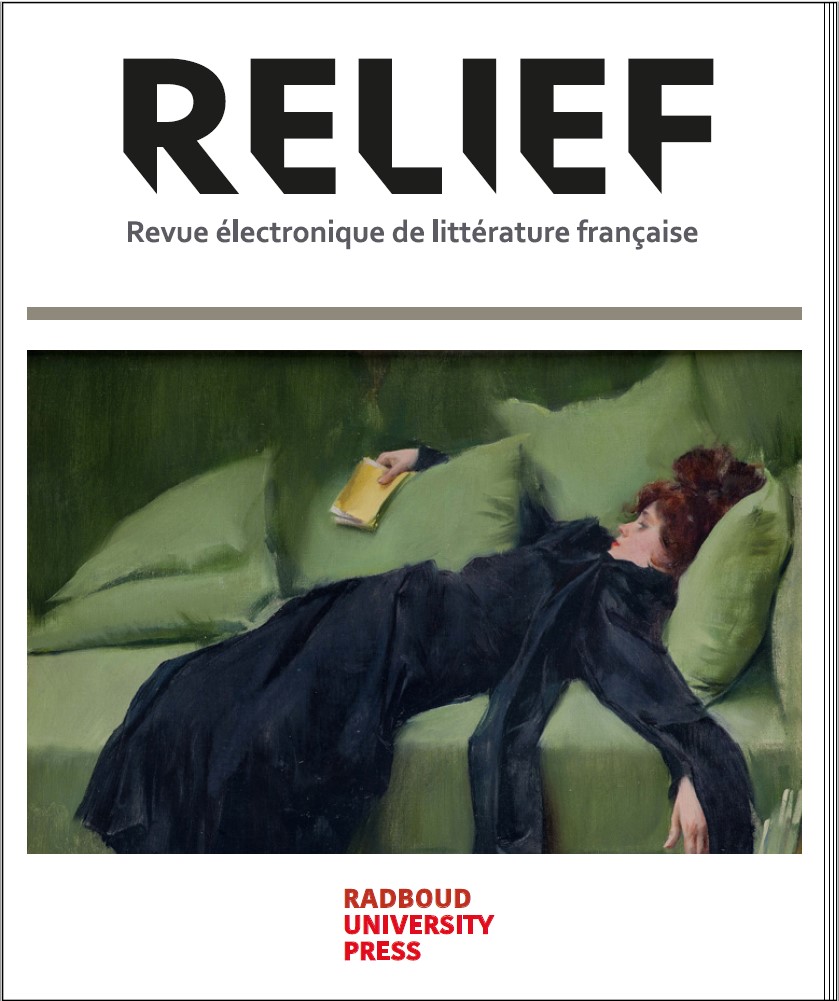The prevented reader. Historical violence, politics of social control and reluctant reading
DOI:
https://doi.org/10.51777/relief18423Keywords:
Bernhard Schlink, Anna Burns, female reader, gender, historical violenceAbstract
Exploring the interstices between literature, political history and gender studies, this article examines two contemporary novels that re-enact the condemnation of the female reader in a European context. This indictment is exacerbated by setting both stories in periods of great tension (the Troubles in Northern Ireland, the post-Second World War period in Germany), that highlight the mechanisms of control surrounding the representation of female reading, a central fact in The Reader (1995) and in Milkman (2018). While the women only read the most legitimate European canon and are not shown as ‘bad’ readers, they are nonetheless unanimously condemned. What is at stake in this paradox is the practice of reading as such by women, the historical frameworks clearly highlighting the asymmetrical gendered imperatives and the heterosexist division specific to patriarchal societies. Reading on one’s own is understood as seditious and dissident, the paradigmatic embodiment of insubordination, an act of autonomy and subjectivation that is particularly denied to women – hence the need to keep these female readers under control.
Downloads

Downloads
Published
Issue
Section
License
Copyright (c) 2023 Anne-Isabelle François

This work is licensed under a Creative Commons Attribution 4.0 International License.
All articles published in RELIEF appear in Open Access under the Creative Commons Attribution 4.0 International License (CC-BY 4.0). Under this licence, authors retain ownership of the copyright of their article, but they allow its unrestricted use, provided it is properly cited.






